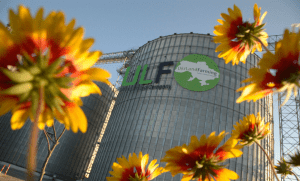
Due to a shortage of working capital caused by pressure from law enforcement agencies, the agricultural holding Ukrlandfarming has reduced the livestock population from 52,000 to 15,700, the owner of the agricultural holding Oleh Bakhmatiuk has said.
“It also requires working capital, which, unfortunately, we do not have, because credit lines are being closed. Let’s be reasonable, it is unlikely that animal husbandry will recover,” he said in an interview with Interfax-Ukraine. Bakhmatiuk said that the number of employees in animal husbandry decreased by 7,000, while in the Avangard sub-holding, which produces eggs and egg products by 5,500.
“At the peak there were 32,200 [employees], and now it is 17,300-17,500. For a year and a half, we laid off about 13,000-13,500 people in two main areas – poultry farming and animal husbandry, because they needed borrowing. This situation was due to the reputational terror that has been waged against the company and personally me as a shareholder over the past year and a half,” the businessman said.
He said that Ukrlandfarming is trying to preserve the agricultural business, in particular, the land bank, after previously falling by 170,000 hectares, has recently stabilized at about 470,000-475,000 hectares: almost 200,000 lease agreements and 600 near settlements.
“Now we must sow, carry out the sowing campaign correctly, with no crediting at all. We have prepared for this. It is twice as difficult for us as for everyone, but we will try to pass it,” Bakhmatiuk said.
According to him, the company failed to take advantage of the rise in prices for grain and corn, because it had to sell goods quickly due to lack of working capital.
The owner of the agricultural holding said that he would try to keep the company at its current size, but if pressure continues, it is likely that it will continue to decline. “Any defense, eventually, retreats. Even if not so sharply, but if in a year and a half we lost 35% of the company, then, for sure, this year we can lose another 15% or 10%,” he said.
Bakhmatiuk said that he remains in dialogue with creditors. However, the latter negatively perceive the events around the company. “They do not support me out of great love, probably. If to take it reasonably, they do it forcibly. But they understand that if there is a loss of the company, then there will be total losses for them. I am fighting for my own, and for them,” the businessman said.
According to him, the conversion of debt into shares in this situation will not fundamentally solve the problem. “The question is not about the shareholders. They are, in fact, shareholders at the expense of loans… It is not a problem with the share capital. But the problem is that an agricultural enterprise cannot live without borrowing, because you have a cycle of six to eight months,” Bakhmatiuk said.
In his opinion, creditors will so far refrain from filing a lawsuit against the company, as this will entail a “domino effect” and the loss of 95% of invested resources. “While these constraining factors are important for them, I maintain some kind of dialog with them. But the arguments are getting smaller. You perfectly understand that the time frame is not eternal: in six months or a year the issue must be resolved,” the businessman said.
He said that Ukraine today is in the “agrarian trend” and has good opportunities to increase the export of raw materials in the coming years.
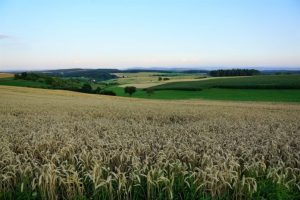
KSG Agro agricultural holding increased its land bank by 6.7%, to 23,900 hectares, the company’s press service said on Wednesday.
According to the report, the agricultural holding has increased its land bank due to 1,500 hectares of land shares in village Strilkove (Henichesk district, Kherson region), where it plans to grow crops.
The exact names of the products are not indicated.
The vertically integrated holding KSG Agro is engaged in pig breeding and production, storage, processing and sale of grain and oilseeds.
Over the nine months of 2020, the agricultural holding posted $4.77 million in net profit, which is 52% less than in the same period in 2019, revenue decreased by 17%, to $14.67 million.
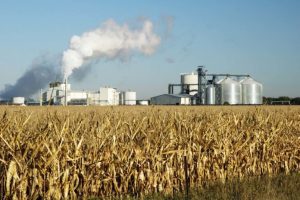
The KSG Agro agricultural holding saw $4.77 million in net profit in January-September 2020, which is 52% less than in the same period in 2019.
According to an unaudited report of the holding, published on the Warsaw Stock Exchange, its revenue in the first nine months of 2020 decreased 17%, to $14.67 million.
In January-September of this year, KSG increased its gross profit 3.6 times compared to the same period in 2019, to $6.77 million, operating profit – 5.4 times, to $13.61 million. EBITDA in the reporting period grew 3.8 times, to $14.71 million.
Revenue and cost of sales are both lower by 17% and 36%, respectively, and primarily in the crop production segment, which is more affected by seasonality and weather conditions. Total revenue in the crop segment in the first nine months of 2020 was $6.9 million, compared to $9.7 million for the same period in 2019.
In January-September 2020, KSG’s revenue in the livestock segment decreased 0.5%, to $7.4 million, As part of the “other operations” segment revenue grew 1.7 times, to $0.4 million. Total pig sales in the first nine months of 2020 year amounted to 80,000 heads.
“The Board of Directors of the company does not currently provide for the significant adverse effects of the coronavirus COVID-19 epidemic on the group’s financial results in 2020,” the company said in its report.
The vertically integrated holding KSG Agro is engaged in pig breeding and production, storage, processing and sale of grain and oilseeds.
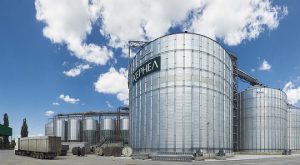
Ukrainian agricultural holding Kernel, which announced about a buyout of 2022 eurobonds for up to $350 million on October 5, received applications for a total sum of $285.89 million by the term of early deadline and decided to satisfy all of them, according to the company’s report on the exchange on Tuesday, October 20.
These debut eurobonds of the agricultural holding were issued in January 2017 for five years for $500 million at 8.875% with a coupon of 8.75%. The purchase price was set at 105.625%.
At the same time, Kernel announced issuing eurobonds in the amount of approximately $300-350 million for a period of five or seven years. The organizers of the issue are JPMorgan, Credit Agricole и Natixis.
“The purpose of the tender offer is to proactively manage and lengthen the structure of the group’s debt by maturity by refinancing part of the bonds with new bonds with a longer maturity,” the report says.
The company confirmed that the early settlement is October 29. The deadline for accepting applications for exchange is November 2, however, after the early deadline, the settlement price is 102.625%. The final settlement date is November 5.
The redeemable Kernel eurobonds at the end of the day on October 19 were quoted at the rate of 105.544% of the face value, which corresponded to profitability of about 4.229%.
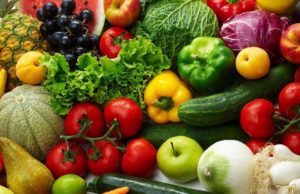
IMC agricultural holding in January-September 2019 saw $18.35 million in net profit, which is 43% less than a year ago.
According to a company report on the Warsaw Stock Exchange (WSE), revenue over the period grew by 46%, to $118.77 million.
Gross profit fell by 19%, to $48.54 million, and operating profit – by 42%, to $22.81 million.
Earnings before interest, taxes, depreciation and amortization (EBITDA) over the period fell by 21%, to $39.96 million.
As of September 30, 2019 noncurrent liabilities of the company totaled $108.95 million compared with $24.93 million as of late September 2018. Current liabilities reached $89.03 million ($81.39 million).
After the reporting period, IMC repaid loans and interest in the amount of $4.72 million and received loans in the amount of $2.85 million.
According to the document, revenue from the sale of corn for the reporting period increased 54%, to $93.34 million, wheat 2.2 times, to $12.77 million, soybeans 22%, to $2.22 million, milk 12%, to $1.13 million. At the same time, revenue from the sale of sunflower decreased 14%, to $7.52 million.
IMC specializes in growing grains, oilseeds and milk production in Ukraine. The agricultural holding processes about 130,000 hectares of land in Poltava, Chernihiv, and Sumy regions. It owns storage capacities of 554,000 tonnes of grains and oilseeds.

Agrovalley Limited, controlled by the chairman of the board of directors of IMC agricultural holding, Oleksandr Petrov, on December 28, 2018 acquired 156,500 shares of IMC S.A. (Luxembourg). According to a report by IMC on the website of the Warsaw Stock Exchange (WSE), the purchase price of one share was PLN12.8 ($3.41 at the rate of the National Bank of Poland on January 7). Agrovalley Limited after the transaction increased the total stake to 23.962 million shares.
IMC specializes in cultivation of grains, oilseeds and milk production in Ukraine. The agricultural holding cultivates about 130,000 hectares of land in Poltava, Chernihiv, and Sumy regions. It owns facilities to store 554,000 tonnes of grains and oilseeds.